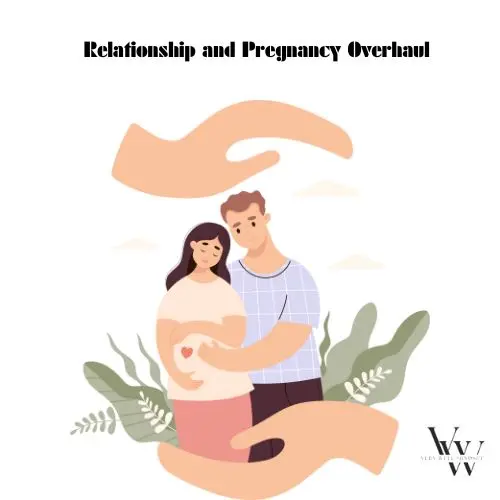Introduction
Relationships and pregnancy are two of the most transformative experiences in a person’s life. While both can bring immense joy and fulfilment, they also come with unique challenges that can strain even the strongest of bonds. In this comprehensive guide, we’ll explore the intricacies of maintaining a healthy relationship and navigating the complexities of pregnancy, offering insights and strategies to help couples thrive during these pivotal life stages.
| Fact | Figure |
|---|---|
| Percentage of couples seeking counselling before marriage. | 38% |
| Divorces per 1,000 married women in the US. | 16.9 |
| Percentage of pregnant women reporting relationship problems. | 27% |
| Percentage of couples who become dissatisfied in their relationship after having a baby. | 67% |
| Rate of postpartum depression in new mothers. | 1 in 7 |
Section 1: Building a Strong Foundation

Before diving into the intricacies of pregnancy, it’s essential to establish a solid foundation for your relationship. This section will focus on fostering communication, intimacy, and trust – the pillars of a healthy, long-lasting partnership.
1.1 Communication: The Key to Understanding
Effective communication is the cornerstone of any successful relationship. It enables couples to express their thoughts, feelings, and needs openly, fostering a deeper understanding and connection. Actively listening, validating each other’s emotions, and practising empathy can go a long way in resolving conflicts and strengthening the bond between partners.
1.2 Intimacy: Beyond the Physical
Intimacy extends beyond physical affection; it’s a profound emotional connection that allows couples to be vulnerable and authentic with one another. Cultivating intimacy involves prioritizing quality time together, sharing personal experiences, and creating shared meaning through meaningful conversations and activities.
1.3 Trust: The Foundation of Vulnerability
Trust is the bedrock upon which vulnerability and emotional intimacy are built. It involves being reliable, honest, and consistent in your actions, words, and intentions. Building trust takes time and effort, but it’s essential for creating a safe space where both partners can be their authentic selves without fear of judgment or betrayal.
Section 2: Navigating the Challenges of Pregnancy

Pregnancy is a miraculous journey, but it also brings its fair share of physical, emotional, and relational challenges. This section will explore strategies for coping with these changes and maintaining a strong connection during this transformative time.
2.1 Understanding Physical Changes
Pregnancy is accompanied by a myriad of physical changes, including weight gain, hormonal fluctuations, and bodily discomforts. Both partners must educate themselves about these changes and approach them with empathy, patience, and understanding. Regular communication about physical needs and adjustments can help alleviate stress and strengthen the bond between partners.
2.2 Navigating Emotional Ups and Downs
Pregnancy can be an emotional rollercoaster, with mood swings, anxiety, and even depression affecting both partners. It’s essential to recognize these emotional changes as normal and seek support when needed. Engaging in self-care practices, such as exercise, meditation, and seeking counselling, can help couples cope with the emotional challenges of pregnancy.
2.3 Redefining Intimacy
Pregnancy can alter a couple’s intimate dynamics. It’s essential to approach these changes with openness, flexibility, and creativity. Exploring new forms of intimacy, such as cuddling, massage, and emotional connection, can help maintain a sense of closeness and foster a deeper understanding between partners.
Section 3: Preparing for Parenthood

The arrival of a new baby is a joyous occasion, but it also brings significant changes to a couple’s relationship and dynamics. This section will focus on preparing for the transition to parenthood and maintaining a strong partnership through the early stages of parenthood.
3.1 Redefining Roles and Responsibilities
The arrival of a child often necessitates a shift in roles and responsibilities within the family. Couples should have open and honest discussions about their expectations, concerns, and desires regarding childcare, household duties, and financial management. Establishing a fair division of labor and supporting each other’s roles can help prevent resentment and maintain a healthy balance.
3.2 Prioritizing Self-Care
Becoming a parent can be physically and emotionally draining. Both partners need to prioritize self-care by taking breaks, engaging in hobbies, and seeking support from friends and family. By nurturing their well-being, parents can show up as their best selves for their children and maintain a strong, resilient partnership.
3.3 Seeking Support
Parenthood can be overwhelming, and it’s essential to recognize when additional support is needed. Building a network of trusted friends, family members, or professionals, such as counsellors or support groups, can provide a lifeline during challenging times. Seeking guidance and sharing experiences with others can help alleviate stress and provide valuable insights into navigating the complexities of parenthood.
Conclusion
Maintaining a healthy relationship and navigating the complexities of pregnancy requires a deep commitment, open communication, and a willingness to adapt and grow together. By establishing a strong foundation, understanding the challenges of pregnancy, and preparing for parenthood, couples can weather life’s storms and emerge stronger, more connected, and better equipped to face the joys and challenges ahead.
Remember, every relationship and pregnancy journey is unique, and there is no one-size-fits-all solution. Seek out resources, engage in ongoing conversations, and remain open to learning and evolving together. With patience, empathy, and a shared commitment to nurturing your bond, you can create a love that transcends individual challenges and stands the test of time.

